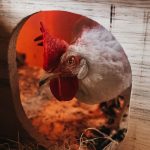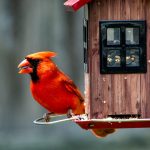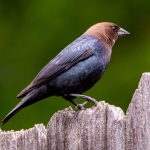Protecting chickens from predators requires a comprehensive understanding of potential threats. Various predators pose risks to poultry, including mammals such as foxes, raccoons, and coyotes, as well as birds of prey like hawks and owls. Each predator type presents unique challenges: mammals may dig under or climb over physical barriers, while aerial predators can attack swiftly from above.
Domestic pets, including dogs and cats, can also be a threat to chickens if not properly supervised. To effectively safeguard a flock, it is crucial to identify and assess all potential dangers specific to the local environment. This knowledge enables chicken owners to develop and implement appropriate protective measures.
By considering both wild and domestic threats, poultry keepers can create a more robust and effective security plan for their chickens.
Table of Contents
Key Takeaways
- Understanding the threat: Recognize common predators such as foxes, raccoons, and birds of prey that pose a threat to chickens.
- Implementing physical barriers: Use sturdy fencing and hardware cloth to create a secure perimeter around the chicken coop and run.
- Using natural deterrents: Planting thorny bushes and using predator urine can help deter predators from approaching the coop.
- Installing motion-activated devices: Set up motion-activated lights, sprinklers, or alarms to startle and deter predators from the area.
- Securing food sources: Store chicken feed in secure containers and avoid leaving food scraps or spilled feed around the coop to reduce the attraction for predators.
- Creating a safe chicken coop: Ensure the coop is well-built with secure latches and locks on doors and windows to prevent predators from gaining access.
- Seeking professional assistance: Consult with local wildlife experts or professional pest control services for additional advice and assistance in protecting chickens from predators.
Implementing physical barriers
Securing the Perimeter
One of the most effective ways to protect your chickens from predators is by implementing physical barriers around their coop and run. This can include installing a sturdy fence around the perimeter of the area where your chickens are kept, as well as adding a secure roof to prevent birds of prey from swooping down and snatching your chickens. Additionally, it’s important to bury the fence at least a foot underground to prevent digging predators from gaining access to your flock.
Securing Openings and Inspecting the Coop
In addition to fencing, it’s also important to secure any openings in your chicken coop, such as windows and doors. This can be done by adding locks or latches to prevent predators from gaining entry. It’s also important to regularly inspect the fencing and coop for any signs of wear or damage, and make repairs as needed to ensure that your chickens remain safe and secure.
Creating a Secure Environment
By implementing physical barriers, you can create a secure environment for your chickens and reduce the risk of predation.
Using natural deterrents

In addition to physical barriers, there are also natural deterrents that can help keep predators away from your chickens. One effective natural deterrent is the use of plants that repel predators, such as marigolds and lavender. These plants emit strong scents that can deter predators from approaching your chicken coop and run.
Additionally, you can also consider using predator urine or other natural repellents to create a barrier around your chickens’ living area. Another natural deterrent is the presence of guardian animals, such as dogs or geese, which can help protect your chickens from predators. These animals can serve as an early warning system and may even be able to scare off potential threats.
By using natural deterrents in addition to physical barriers, you can create a multi-layered defense system that will help keep your chickens safe from harm.
Installing motion-activated devices
Motion-activated devices can be an effective way to deter predators from approaching your chicken coop and run. These devices are designed to detect movement and emit a loud noise or flashing light when triggered, which can startle predators and drive them away. Additionally, some motion-activated devices are equipped with water sprayers that can be used to deter predators without causing them harm.
When installing motion-activated devices, it’s important to place them strategically around your chickens’ living area to ensure maximum coverage. This may include placing them near potential entry points for predators, such as gates or openings in the fence. By using motion-activated devices, you can create an additional layer of defense that will help keep your chickens safe from harm.
Securing food sources
Another important aspect of protecting your chickens from predators is securing their food sources. This includes storing feed in secure containers that are resistant to tampering by rodents and other pests. Additionally, it’s important to clean up any spilled feed promptly to prevent attracting predators to your chickens’ living area.
In addition to securing feed, it’s also important to consider the impact of wild bird feeders on your chickens’ safety. While wild bird feeders can attract beautiful songbirds to your yard, they can also attract predators such as hawks and owls. If you have wild bird feeders near your chicken coop and run, it’s important to take steps to minimize the risk of predation, such as placing feeders at a distance from your chickens’ living area or using baffles to prevent access by larger birds.
Creating a safe chicken coop

Coop Construction and Maintenance
A sturdy and well-maintained coop is crucial in keeping your chickens safe from predators. The coop should be built with durable materials that can withstand attempts by predators to break in.
Interior Layout and Design
The interior of the coop is just as important as its exterior. Providing roosts and nesting boxes that are elevated off the ground can reduce the risk of predation while your chickens are sleeping or laying eggs.
Ventilation and Security
Adequate ventilation is essential in maintaining a healthy environment for your chickens. However, it’s equally important to ensure that openings are secure to prevent entry by predators.
Seeking professional assistance
If you’re struggling to protect your chickens from predators despite implementing various deterrents and security measures, it may be time to seek professional assistance. There are professionals who specialize in predator control and can help you develop a comprehensive plan for protecting your flock. This may include conducting a thorough assessment of your property and identifying potential vulnerabilities that need to be addressed.
In addition to professional assistance with predator control, it’s also important to seek veterinary care for any chickens that have been injured by predators. A veterinarian can provide treatment for injuries and help you develop a plan for preventing infection and promoting healing. By seeking professional assistance, you can ensure that you have access to the expertise and resources needed to keep your chickens safe from harm.
In conclusion, protecting your chickens from predators requires a multi-faceted approach that includes understanding the various threats they may face, implementing physical barriers and natural deterrents, securing food sources, creating a safe chicken coop, and seeking professional assistance when needed. By taking proactive steps to protect your flock, you can create a secure environment that will help keep your chickens safe from harm.
If you’re looking for ways to protect your chickens from predators like mongooses, you may also be interested in learning about how to insulate a chicken coop to keep your birds safe and comfortable. Check out this article on how to insulate a chicken coop for helpful tips and advice.
FAQs
What are mongooses and why are they a threat to chickens?
Mongooses are small carnivorous mammals that are known to be a threat to chickens. They are agile and quick, making them effective hunters of small animals, including chickens.
What are some methods to keep mongooses away from chickens?
Some methods to keep mongooses away from chickens include securing the chicken coop with strong wire mesh, installing motion-activated lights or sound devices, using guard animals such as dogs or geese, and keeping the surrounding area clear of potential hiding spots for mongooses.
Are there any natural deterrents for mongooses?
Some natural deterrents for mongooses include planting certain types of plants that mongooses dislike, such as marigolds or garlic, and using natural predators of mongooses, such as owls or hawks, to keep them away from the chicken coop.
What should I do if I spot a mongoose near my chicken coop?
If you spot a mongoose near your chicken coop, it is important to take immediate action to protect your chickens. This may include scaring the mongoose away using loud noises or by spraying it with water, and then reinforcing the security of the chicken coop to prevent future incursions.
Meet Walter, the feathered-friend fanatic of Florida! Nestled in the sunshine state, Walter struts through life with his feathered companions, clucking his way to happiness. With a coop that’s fancier than a five-star hotel, he’s the Don Juan of the chicken world. When he’s not teaching his hens to do the cha-cha, you’ll find him in a heated debate with his prized rooster, Sir Clucks-a-Lot. Walter’s poultry passion is no yolk; he’s the sunny-side-up guy you never knew you needed in your flock of friends!







